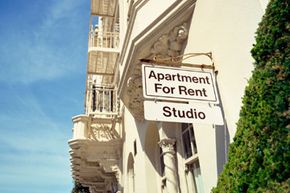Whether you're moving into your own place for the first time, getting a place to stay in for college, or just making a change in your living situation, renting a new apartment is an exciting time. It's also a potentially nerve-wracking challenge, when you consider the cost of the apartment, moving all of your stuff in, unpacking, and getting a suitable roommate. The only constant in apartment life, though, is the lease. In the United States, for the most part, apartments are arranged in complexes or buildings, and are individually rented, or leased out. Apartments are also paid for on a month-by-month basis, as opposed to being purchased outright.
A lease is a legally binding contract, laying out the rules agreed upon between the landlord or property owner and you, the tenant. It can be from one to many pages, but in general, a lease defines exactly how long you'll be renting the apartment (six months, one year, two years and so on) and exactly how much money you'll pay in rent each month (and on what day). Other major points often found include security deposits, first-and-last-months' rent requirement, pet rules, who pays for what utilities, and who is responsible for maintenance and repairs. Even things like overnight guests, pool privileges and parking lot access might get a mention.
Advertisement
Both the landlord and the tenant benefit from a lease. First of all, it's a clear, specific, written record, and a source of reference in case there are any questions about the terms of living in the apartment. It gives security to the landlord, in that it contractually ensures that he'll have a source of revenue each month and will receive it at a specific time. For the tenant, it provides a locked-in rent rate, as well as a legal statement of the renter's rights, should any disputes arise.
Let's look at what leases cover, including general rules and regulations, roommates, pets, and the quandary of what to do if you need to break a lease.
Advertisement




